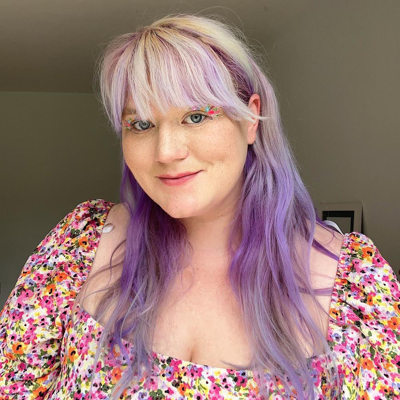“I felt so belittled” - Els’ story
25/09/2024
Els was recently misdiagnosed with borderline personality disorder (BPD). She sheds light on the ongoing stigma, misunderstanding and stereotyping she has faced from healthcare professionals because of this label.
My name is Els and I’m 25 years old. I’ve struggled with my mental health for 15 years, spending half of my life in and out of mental health services. Over the years, I’ve been diagnosed with several conditions: depression, anxiety, PTSD (post-traumatic stress disorder) and, more recently, BPD (borderline personality disorder).
On a day-to-day basis, I manage a generally low mood that can fluctuate to highs, and I frequently experience intrusive thoughts. There are times when I also face hallucinations, paranoia and intense suicidal urges.
I want to recognise the differing perspectives of BPD as a diagnosis. Whilst some people find it helpful, others have found it stigmatising and felt that it has not been properly applied. Whilst I acknowledge the varying perspectives, I personally feel the BPD diagnosis does not apply to me.
-
I was questioning myself constantly: was my pain real? Was I simply trying to get attention? Was I just this silly, little undeserving girl?
Research has demonstrated that mental health professionals view patients with a BPD diagnosis as ‘unworthy, immoral and undesirable’ (Papathanasiou and Styliandis, 2022). This attitude is something I have felt persistently from healthcare professionals whilst accessing treatment.
My first experience of stigma surrounding the BPD diagnosis emerged before I was even officially diagnosed. I was 20 years old, sat in general hospital following a suicide attempt, when an on-call psychiatrist came to see me. He discussed a plan going forward to discharge me and refer me to the crisis team with an assessment for BPD. He then said, “you seem disappointed with this plan. People like you often want to be in hospital instead.” I wanted to feel helped, and thought I’d come away feeling relieved. Instead, I felt so belittled.
Let's Rethink
I knew BPD came with a lot of stigma, but to be faced with this reality, before I’d even received the diagnosis, was a crushing experience for me. Fast forward another month, where a different psychiatrist in an outpatient clinic told me that BPD wasn’t a mental illness; it was just a “behavioural disorder”. Those words latched onto my brain. I was questioning myself constantly: was my pain real? Was I simply trying to get attention? Was I just this silly, little undeserving girl?
Later on, I was suicidal and had to speak with the crisis team again. I was crying, desperately seeking support, as I was putting myself in riskier situations every day, when the clinician told me I needed to work with my psychologist to “fix my behaviour”. There was no mention or recognition of the intense emotional pain I was in. My tears were seen as calculated; not a sign that I needed support.
-
If mental health professionals can treat me this way, what would the general public think of me?
This is only a small snapshot of the stigma I’ve faced from mental health professionals in regard to my label of BPD. The continued stigma that underpinned almost every appointment slowly broke me. I began to dread my appointments and saw them as an argument of me versus them. I’m either working hard and don’t need support, or I’m not trying and don’t deserve support.
I spent so long questioning why my life was seen as disposable. As someone whose self-esteem was already destroyed from years of trauma, this was deeply retraumatising. I couldn’t, and still can’t, understand why people would go into the mental health profession when they appear to view me, and others like me, with such contempt. At my lowest, I questioned if the plan was to let me die and free up the time for someone deemed more worthy.
I’m usually a very open person and don’t hide my mental health history, but when it comes to specifically disclosing the BPD label, I’m more reserved. If mental health professionals can treat me this way, what would the general public think of me?

